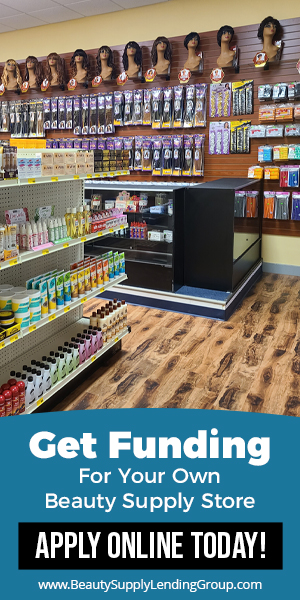There are approximately 13,000 brick and mortar beauty supply retail stores across America. Even with the influx of technology, these stores continue to thrive. In fact, reports in Beauty Business Magazine, shows, in the height of the Great Recession of 2008, the Beauty Supply Business grew by 12%. Why is that? Various reasons.
The multi-billion-dollar ethnic beauty supply retail market customer base is made up of 96% African-Americans. In the African-American culture, there is a mixture of reasons why brick and mortar stores continue to thrive.
- The African-American community continues to face the challenges of the digital divide (lack of computers and media devices that access the Internet).
- To participate in the e-commerce component of digital technology, users must have qualified banking accounts, which these accounts are at a lower rate in the African-American community.
- The need for beauty products is greater in this community due to increased skin and hair issues/blemishes due to poorer health, economics and nutrition.
- This community tends to have more smaller mom and pop businesses (like beauty supply stores, nail shops, salons, etc.), versus larger chain stores in the same industries operating in this community; especially in rural areas.
- Piggybacking on #4, there is less vehicular mobility in this community. This allows for many more customers patronizing these smaller beauty supply stores.
This industry continues to be lopsided where large sums of revenue leave the African-American community to enrich mostly Asian communities. While the barrier of entry isn’t that high (when considering required licensing, certifications, etc.), the barrier to enter does require finances and proper commercial business skillset; what many African-Americans find challenging to access.
Those things added to the intentional lockout Asians enact against African-Americans make the journey to owning their own store extremely difficult. Those that are lucky to get in, face tremendous competition by Asians when they are not armed with proper knowledge of the industry and store operations.
Nonetheless, these stores continue to pop-up around America and outperforms many retail stores in other industries by far. Knowing the roads to take to ownership for yourself can prove to be financially life-changing, while taking the wrong roads can find you further behind financially.
The fact is, these stores don’t care who owns them. They continue to boom as a subset of the retail industry.






Comments are closed.